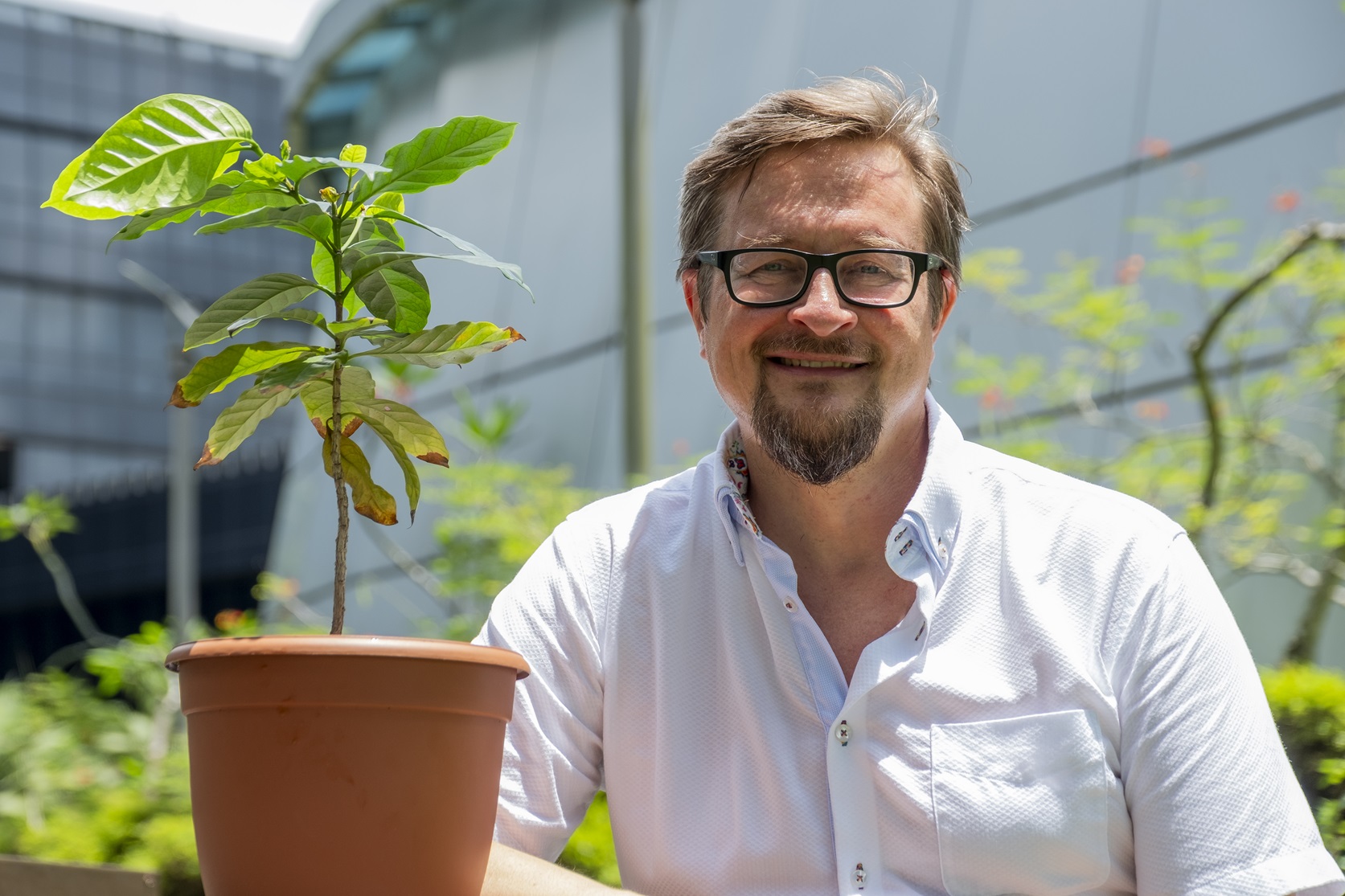Scientists find common genes defending coffee plants against devastating disease

Arabica coffee is the most economically important coffee globally and accounts for 60 per cent of coffee products worldwide. But the plants it hails from are vulnerable to coffee leaf rust disease that, in the 1800s, devastated Sri Lanka’s coffee empire.
To prevent a potentially disastrous wipeout of Arabica plants worldwide by the disease, an international team of researchers co-led by NTU Singapore studied the genomic origins and breeding history of the plant.
The other co-leads of the study, published in Nature Genetics, are based at the world's largest food and beverage company Nestlé, the Université de Montpellier in France and the University at Buffalo in the United States.
The scientists, co-led by Assistant Professor Jarkko Salojarvi from NTU’s School of Biological Sciences, mapped out all the genetic material – or genomes – of Arabica and two related coffee plants in great detail. This allowed the team to identify a new combination of genes shared by the plants that are resistant to coffee leaf rust. With the data on the genomes, other useful traits in coffee plants can also be identified.
Discovering the resistance genes opens the way to better protect coffee lovers’ daily fix and maintain their drink’s high-quality taste, thereby supporting an industry employing millions of workers.
Read more about this story on the NTU Research Hub.














/enri-thumbnails/careeropportunities1f0caf1c-a12d-479c-be7c-3c04e085c617.tmb-mega-menu.jpg?Culture=en&sfvrsn=d7261e3b_1)

/cradle-thumbnails/research-capabilities1516d0ba63aa44f0b4ee77a8c05263b2.tmb-mega-menu.jpg?Culture=en&sfvrsn=1bc94f8_1)

7e6fdc03-9018-4d08-9a98-8a21acbc37ba.tmb-mega-menu.jpg?Culture=en&sfvrsn=7deaf618_1)


-prof-lam-khin-yong.tmb-listing.jpg?Culture=en&sfvrsn=24694f9c_1)



